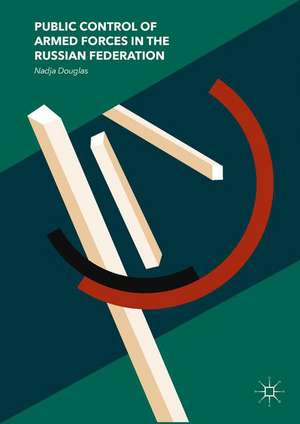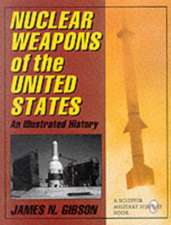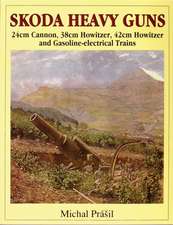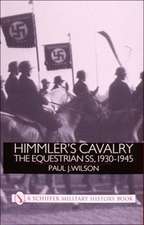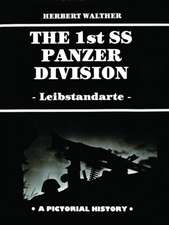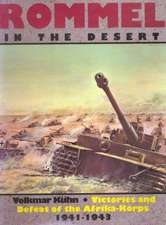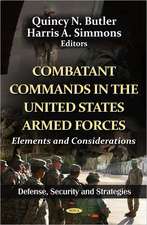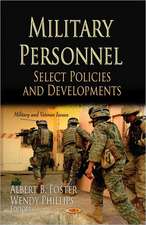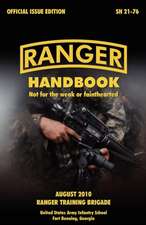Public Control of Armed Forces in the Russian Federation
Autor Nadja Douglasen Limba Engleză Hardback – 18 oct 2017
The volume deals with the fundamentals of the contemporary relations between civic actors and state power structures. The main focus lies on public control of armed forces and the question of why civilians should have a vigilant eye on the military institution as well as the civilian authority that legitimizes the use of force. Based on the example of conscription and recruitment as an intersection between the military and society, this study engages in an analysis of institutional change in the politico-military field in post-Soviet Russia. Taking a critical stance on conventional military sociology, the book shifts the focus away from the exclusive power relationship between political and military elites in the context of national security. Instead, it takes into consideration human and societal security, i.e. the needs and demands of individuals and groups at the grassroots level, affected by the military and the prevailing security situation in Russia. The book addresses readers with an interest in civil-military relations, contemporary Russian affairs, and social movement theories.
| Toate formatele și edițiile | Preț | Express |
|---|---|---|
| Paperback (1) | 689.99 lei 38-44 zile | |
| Springer International Publishing – 14 aug 2018 | 689.99 lei 38-44 zile | |
| Hardback (1) | 739.00 lei 43-57 zile | |
| Springer International Publishing – 18 oct 2017 | 739.00 lei 43-57 zile |
Preț: 739.00 lei
Preț vechi: 901.22 lei
-18% Nou
Puncte Express: 1109
Preț estimativ în valută:
141.42€ • 146.75$ • 118.21£
141.42€ • 146.75$ • 118.21£
Carte tipărită la comandă
Livrare economică 17-31 martie
Preluare comenzi: 021 569.72.76
Specificații
ISBN-13: 9783319563831
ISBN-10: 3319563831
Pagini: 362
Ilustrații: XXI, 361 p. 9 illus. in color.
Dimensiuni: 148 x 210 mm
Greutate: 0.77 kg
Ediția:1st ed. 2017
Editura: Springer International Publishing
Colecția Palgrave Macmillan
Locul publicării:Cham, Switzerland
ISBN-10: 3319563831
Pagini: 362
Ilustrații: XXI, 361 p. 9 illus. in color.
Dimensiuni: 148 x 210 mm
Greutate: 0.77 kg
Ediția:1st ed. 2017
Editura: Springer International Publishing
Colecția Palgrave Macmillan
Locul publicării:Cham, Switzerland
Cuprins
Chapter 1: Introduction.- Chapter 2: Looking at the Bigger Picture.- Chapter 3: Different Understandings of Civilian Control.- Chapter 4: Revising the Framework for Civilian Control.- Chapter 5: Institutionalised forms of Civilian Control.- Chapter 6: Heterogenous landscape of grassroots initiatives.- Chapter 7: Public Control of Armed Forces as Social Practice.- Chapter 8: Tracing the Impact of Civic Activism on Military Legislation (AGS Law).- Chapter 9: Conclusion.
Notă biografică
Nadja Douglas is Researcher at the Centre for East European and International Studies (ZOiS), Germany. She holds a Master’s degree in International Relations from Sciences Po Paris and a PhD from Humboldt University Berlin. Previously, she worked as a policy advisor at the German Bundestag and the OSCE. Her research focuses on peace and conflict, human rights and the politico-military dimension of the OSCE.
Textul de pe ultima copertă
The volume deals with the fundamentals of the contemporary relations between civic actors and state power structures. The main focus lies on public control of armed forces and the question why civilians should have a vigilant eye on the military institution as well as the civilian authority that legitimizes the use of force. Based on the example of conscription and recruitment as an intersection between the military and society, this study engages in an analysis of institutional change in the politico-military field in post-Soviet Russia. Taking a critical stance on conventional military sociology, the book shifts the focus away from the exclusive power relationship between political and military elites in the context of national security. Instead, it takes into consideration human and societal security, i.e. the needs and demands of individuals and groups at the grassroots level, affected by the military and the prevailing security situation in Russia. The book addresses readers with an interest in civil-military relations, contemporary Russian affairs and social movement theories.
Caracteristici
Analyzes the importance of human and societal security in Russia Takes a critical stance on the classical perspective of military sociology and shifts the focus away from the exclusive power relationship between political and military elites Explores how grassroots organizations perform in their natural settings and how they engage in daily routines and practices of public control Includes supplementary material: sn.pub/extras
